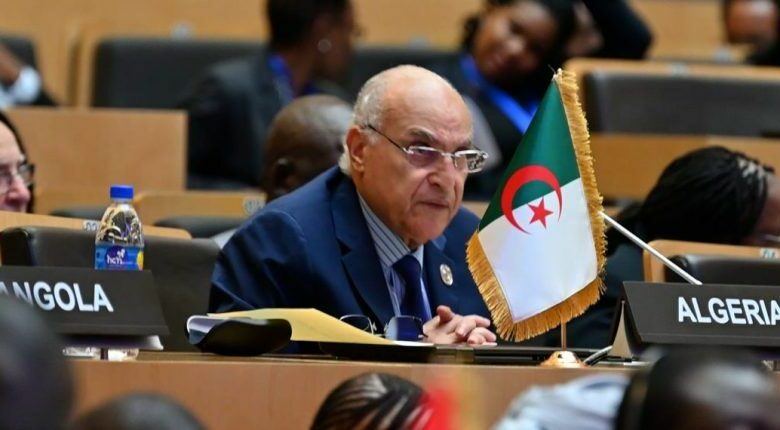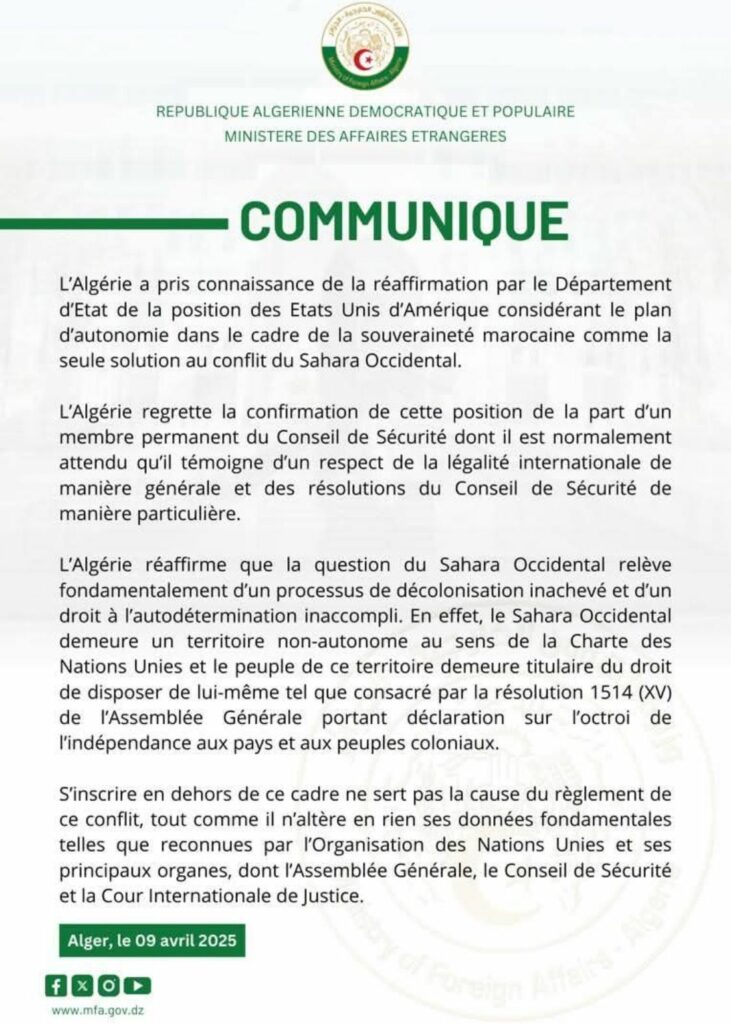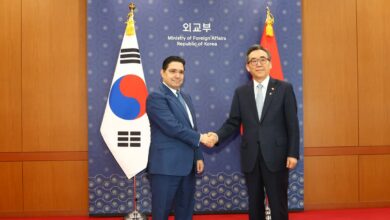Algeria and the Farce of Repetitive Statements: A New Episode of the “Communiqué Diarrhea” Syndrome!

ALDAR / Analysis
In what seems to be an endless repetition, the Algerian Ministry of Foreign Affairs issued a new statement on April 9, 2025, this time commenting on the U.S. State Department’s declaration affirming the Moroccan sovereignty over the Sahara and strongly supporting Morocco’s stance.
The Algerian statement appeared to be more about making noise than being heard.

In its content, Algeria expressed its “deep regret” over what it called explicit U.S. support for Morocco’s autonomy initiative in the Sahara, claiming that this position contradicts UN Security Council resolutions and the principles of international law. However, the international community — or at least most major powers — is increasingly moving toward supporting the Moroccan proposal as a realistic and practical solution to a long-standing conflict.
The statement brought nothing new, merely reiterating the usual positions that have come to resemble a “communiqué syndrome.” Algeria continues to insist that the Sahara issue is a “decolonization matter,” even though the reality on the ground — politically, diplomatically, and practically — shows that this train left the station years ago.
What stands out is that Algeria keeps speaking on behalf of the “people of the region” without being a recognized party in the negotiations or even a direct representative. It remains content with playing the role of an external commentator, rejecting all practical solutions while offering no convincing alternatives.
A pressing question arises: Do these communiqués truly reflect a mature diplomatic stance, or are they merely noise meant to distract from the internal deadlock Algeria is facing on multiple regional and international fronts? More importantly: Who benefits from this endless repetition?
Until further notice, it seems the “communiqué diarrhea” series will continue, as long as Algeria refuses to acknowledge the regional and international shifts taking place and insists on clinging to outdated narratives that lost their relevance long ago.





